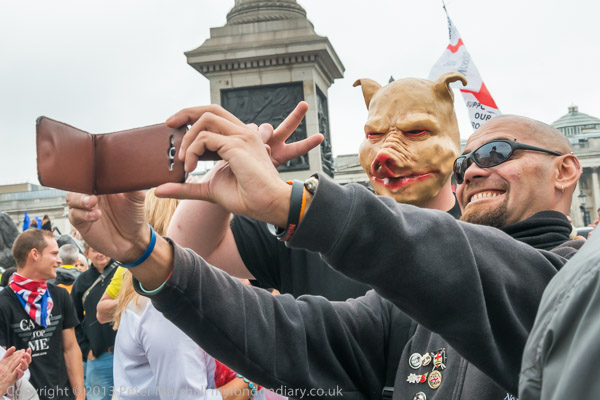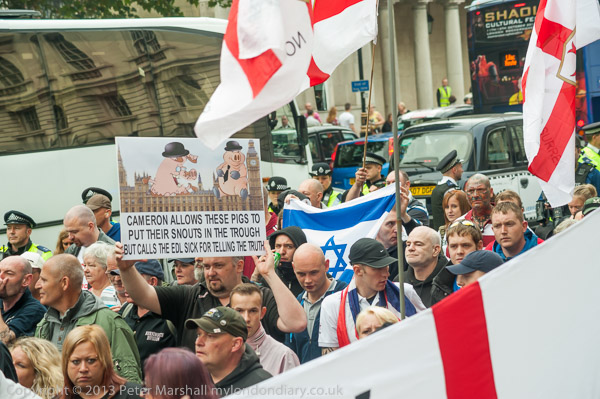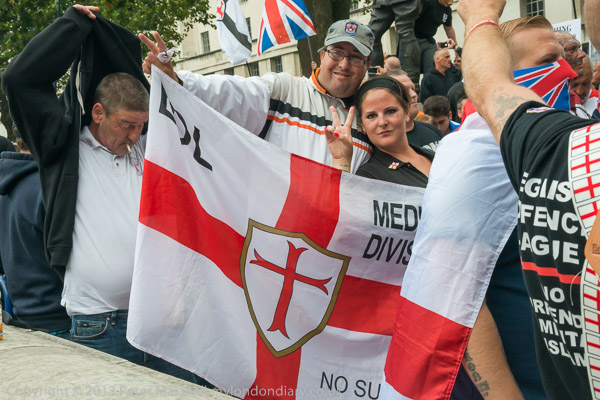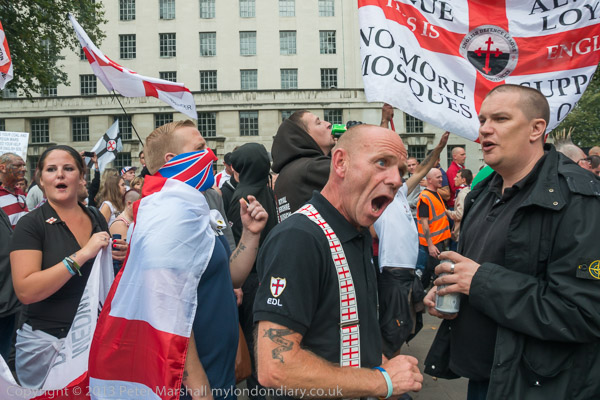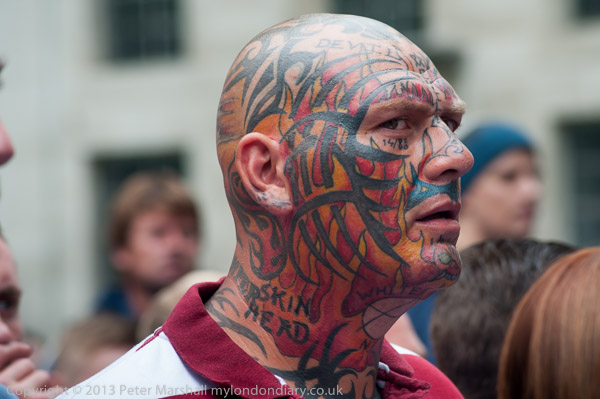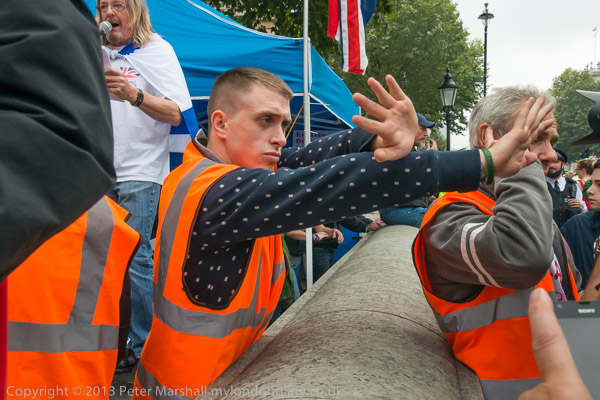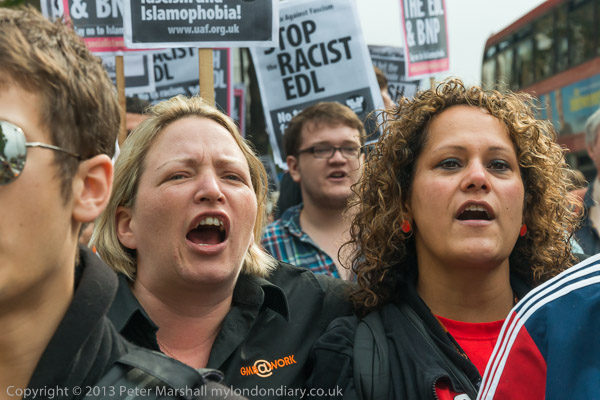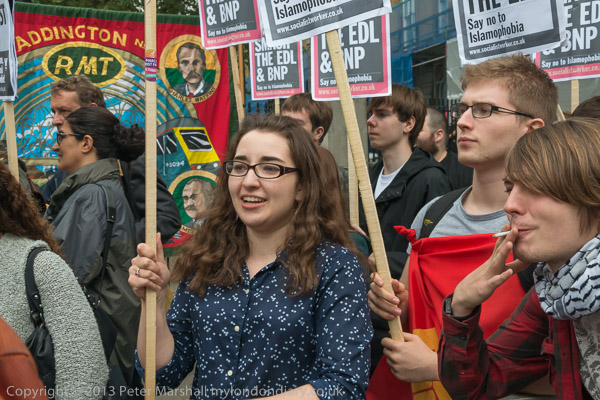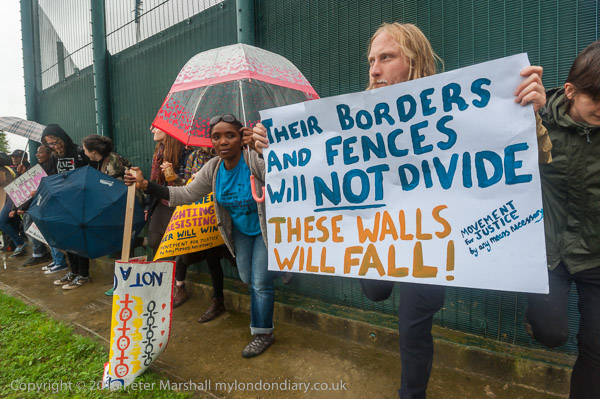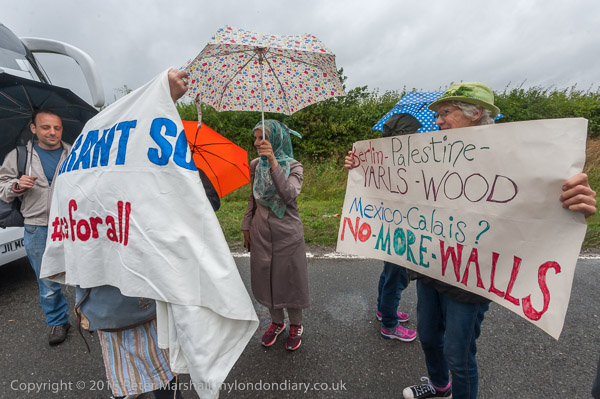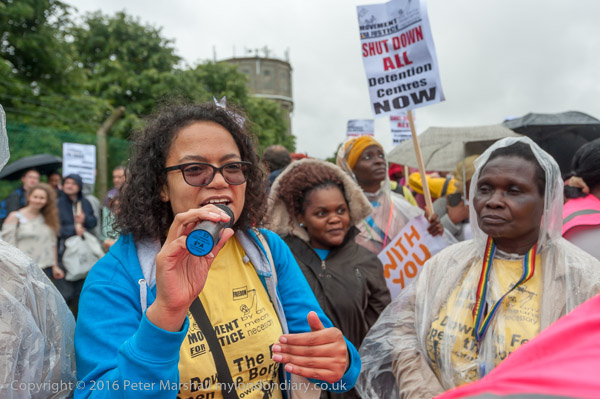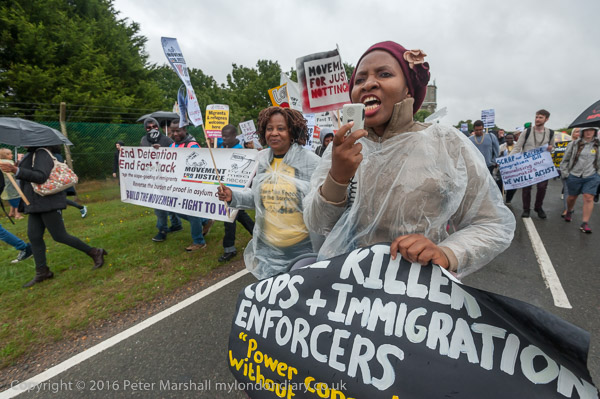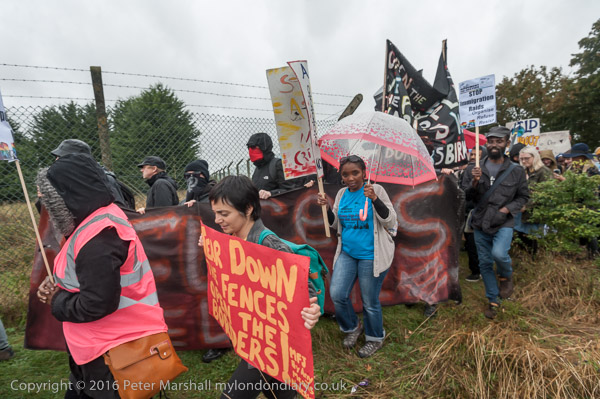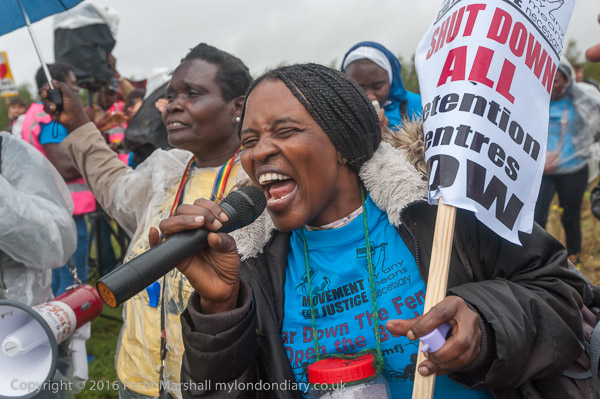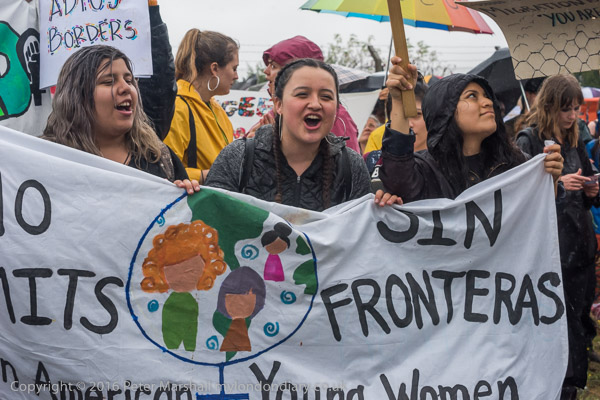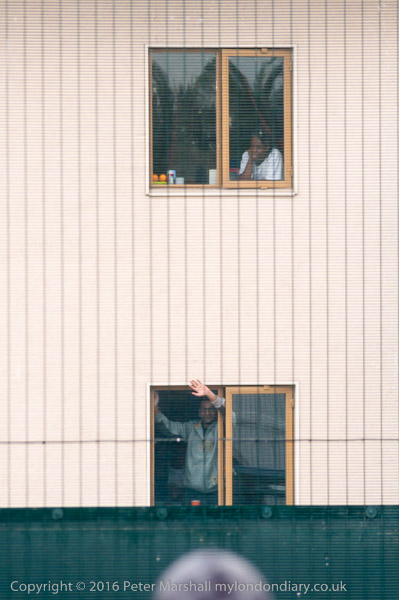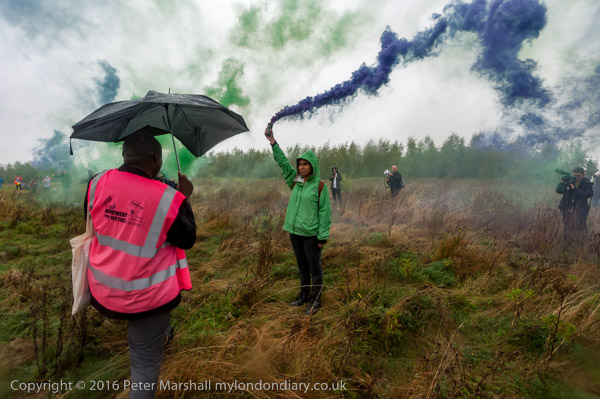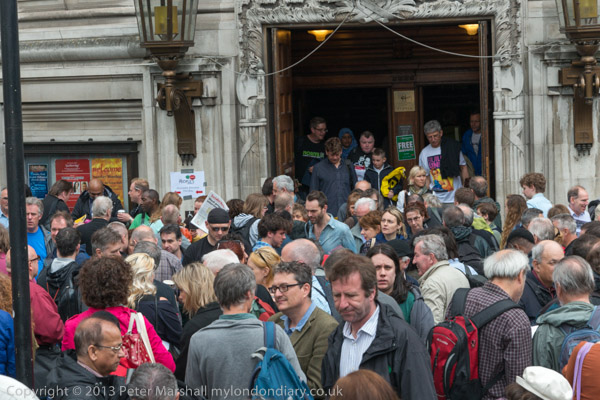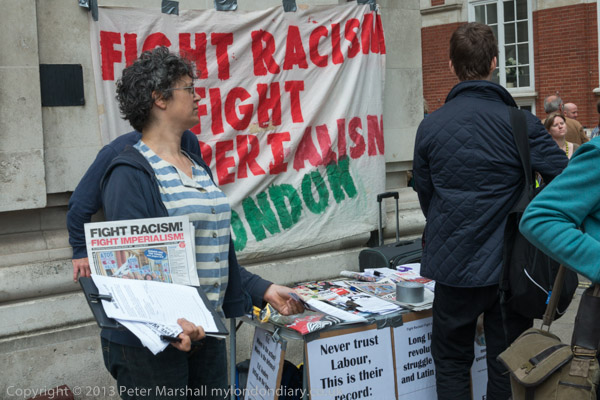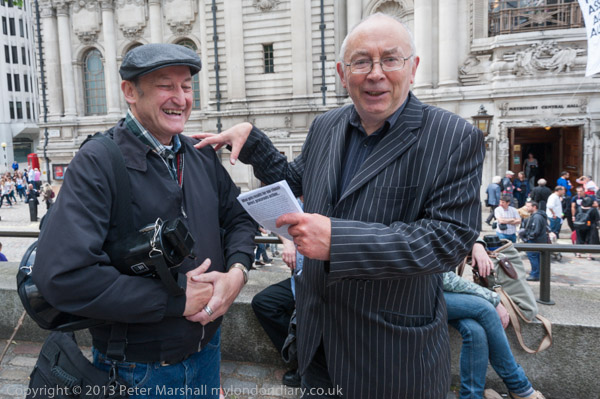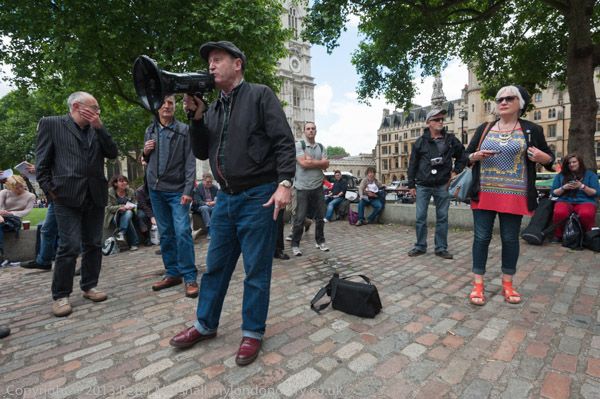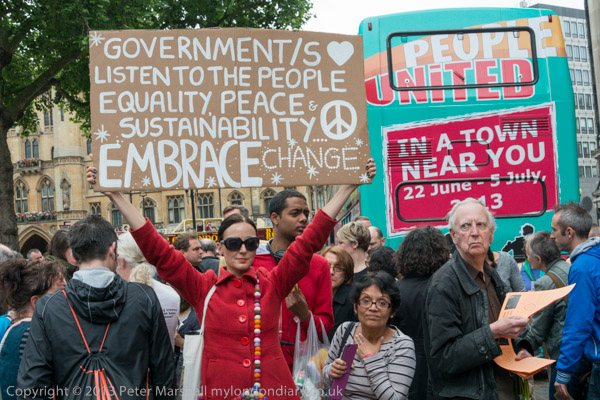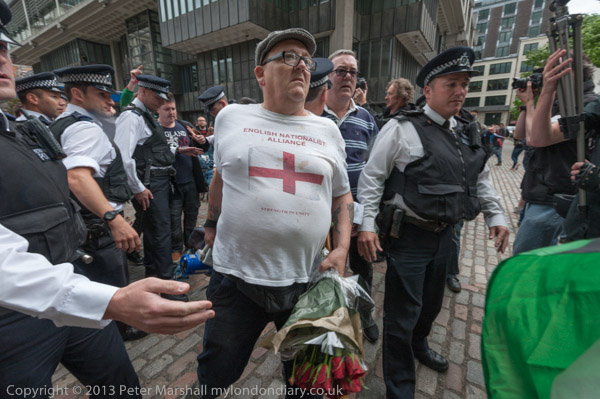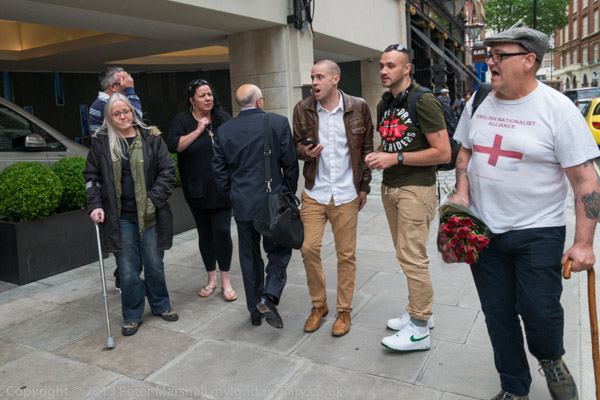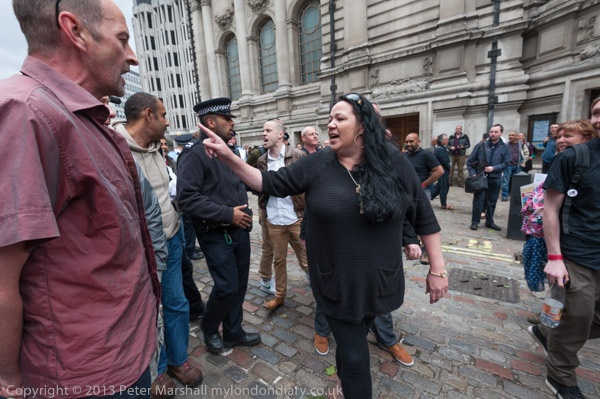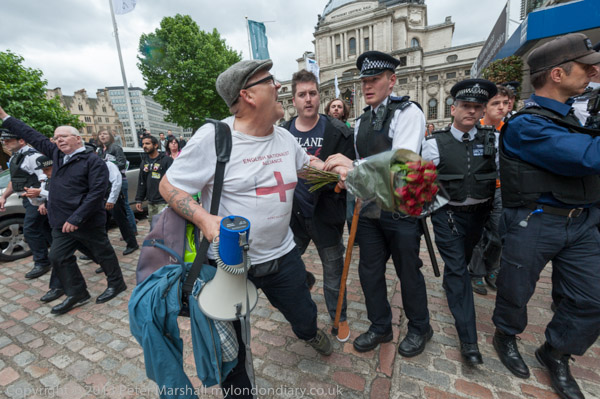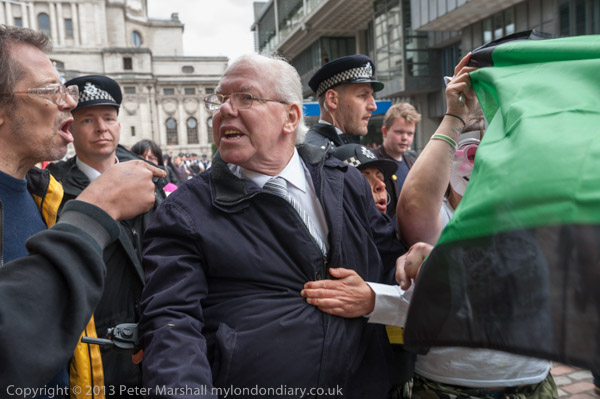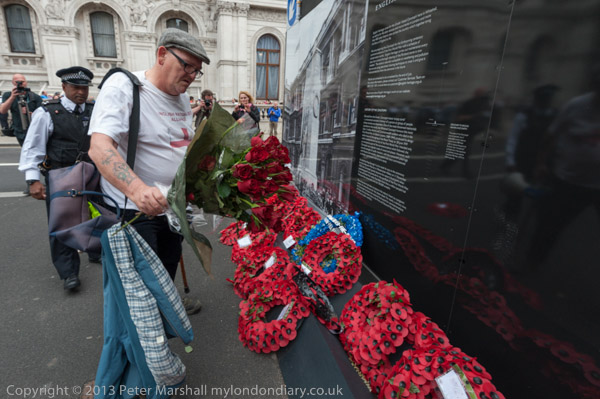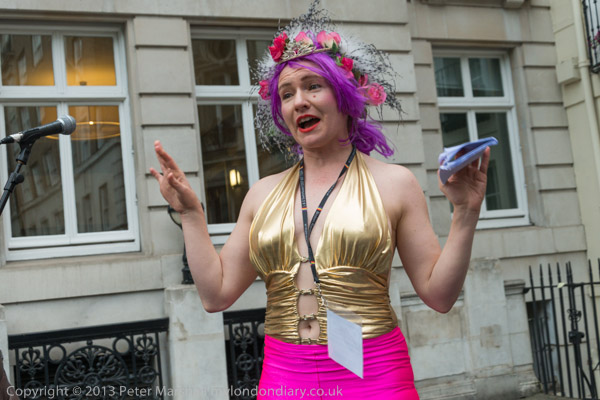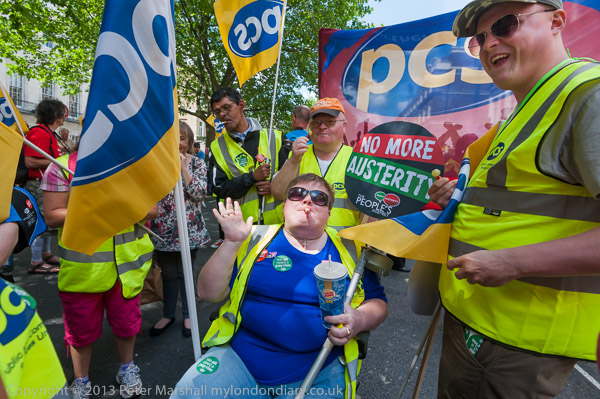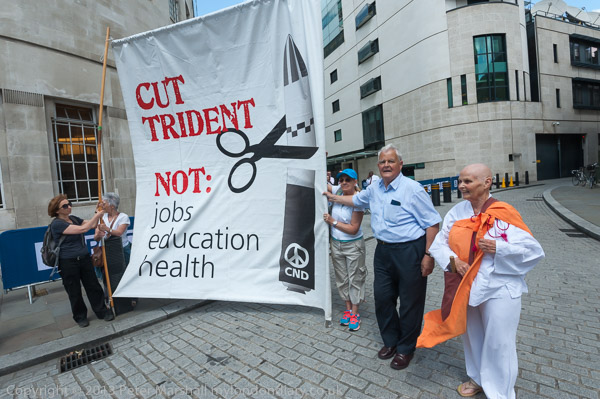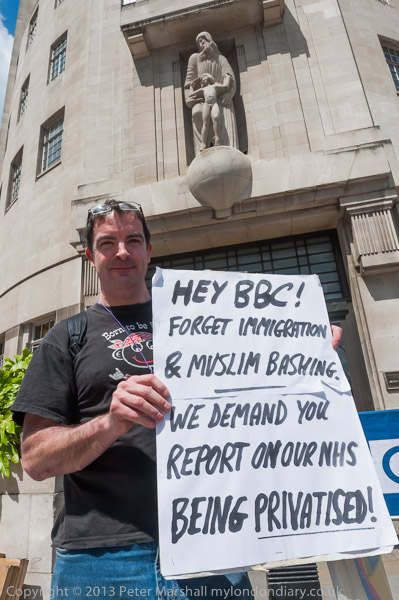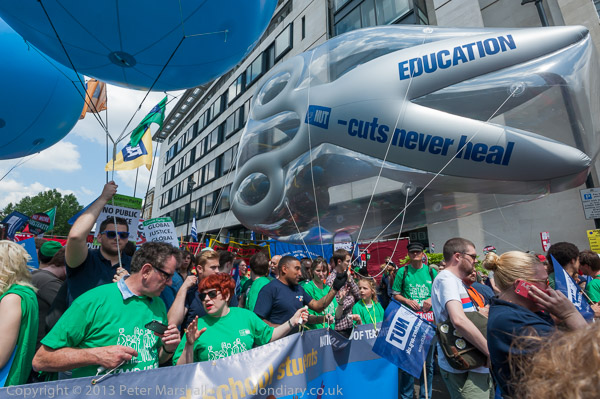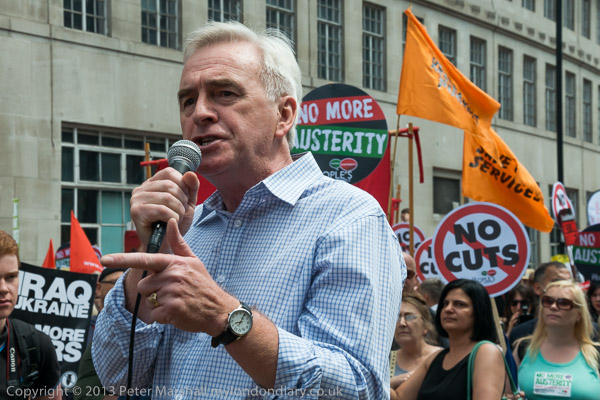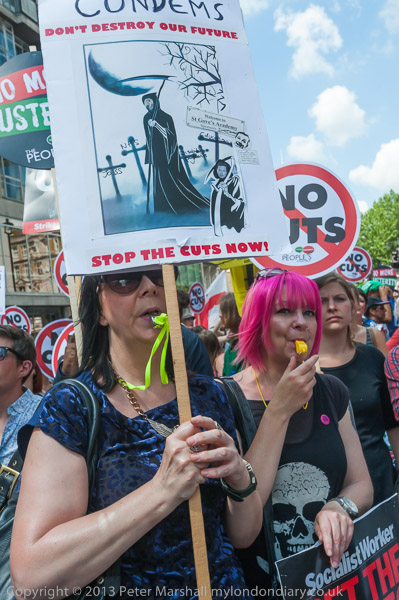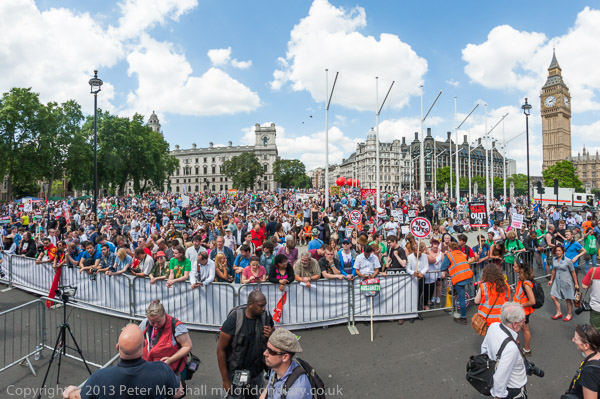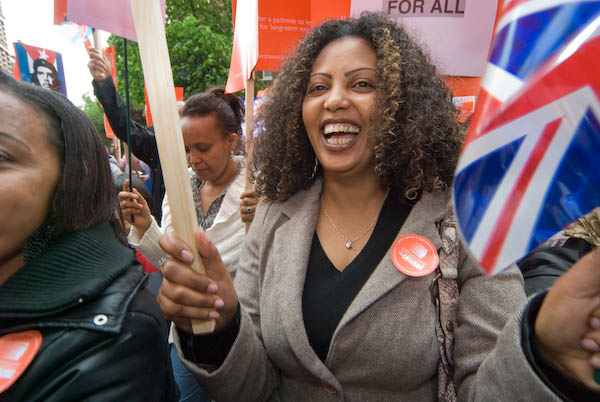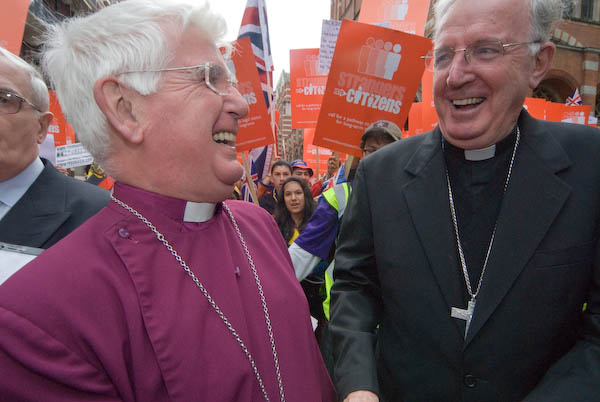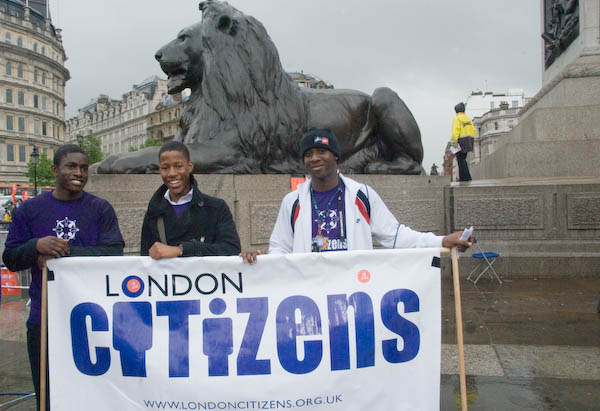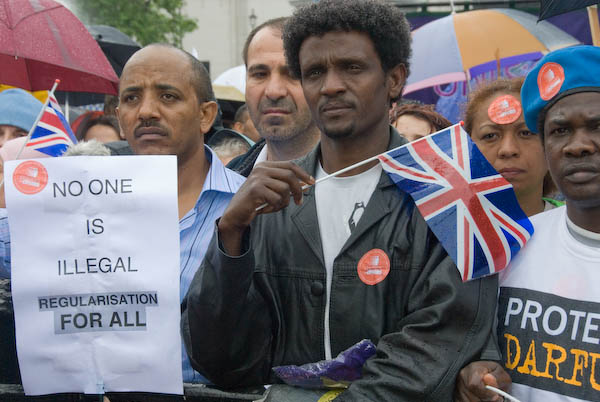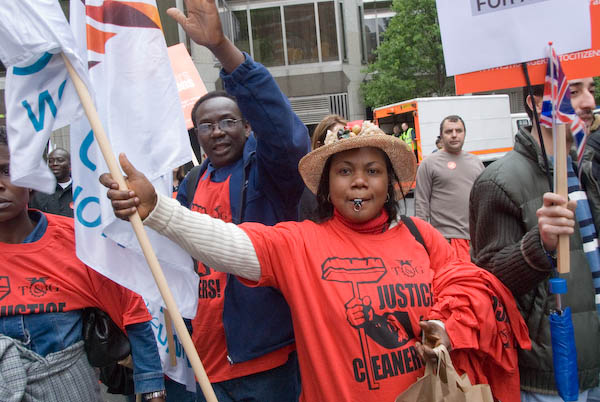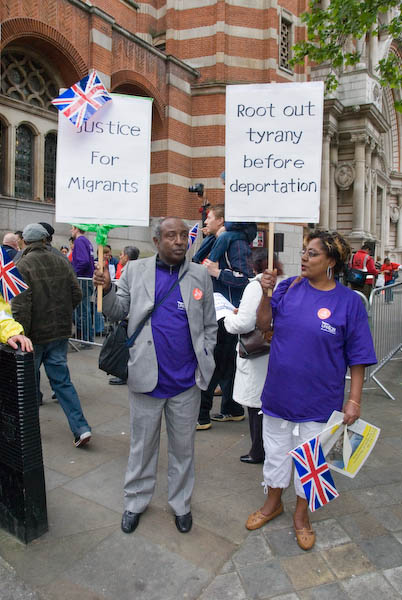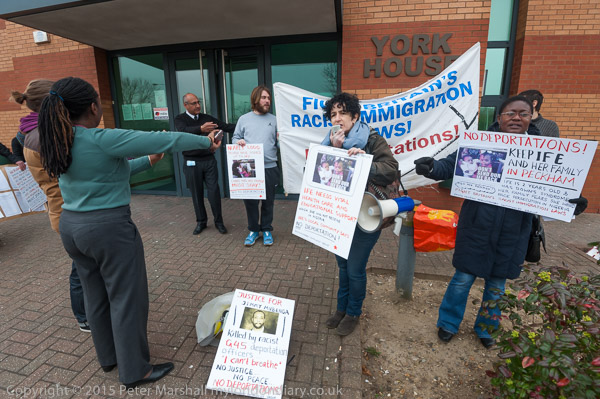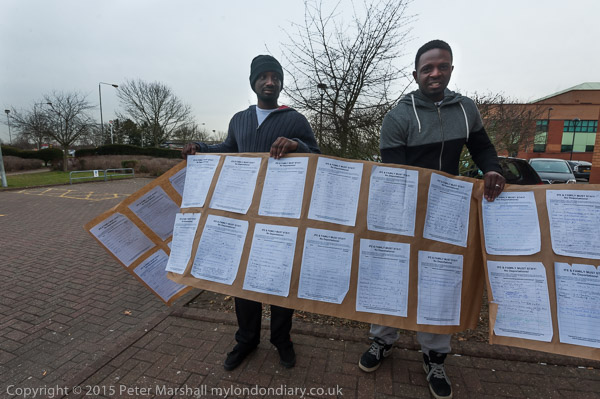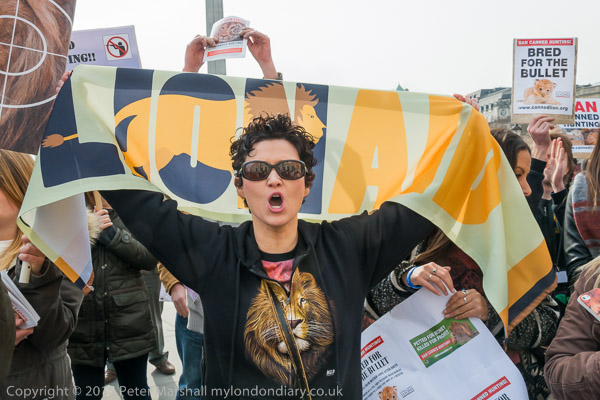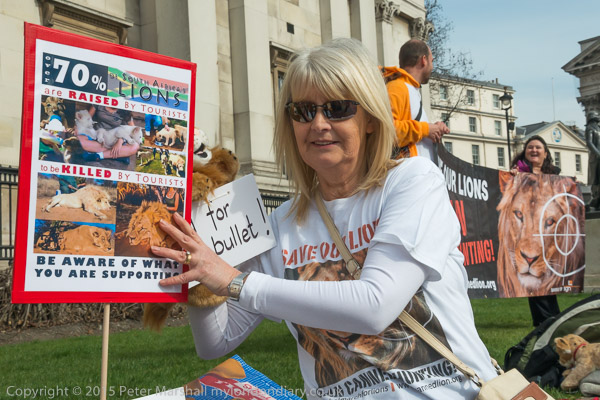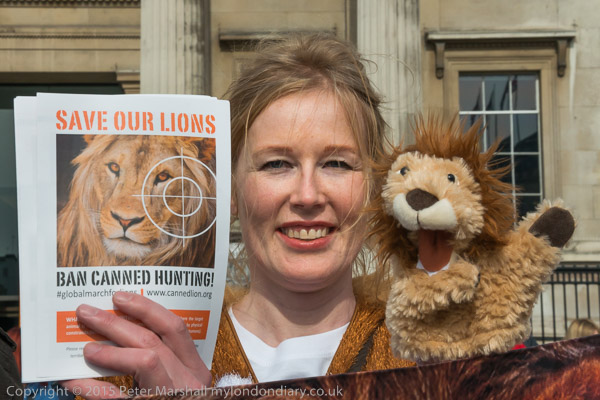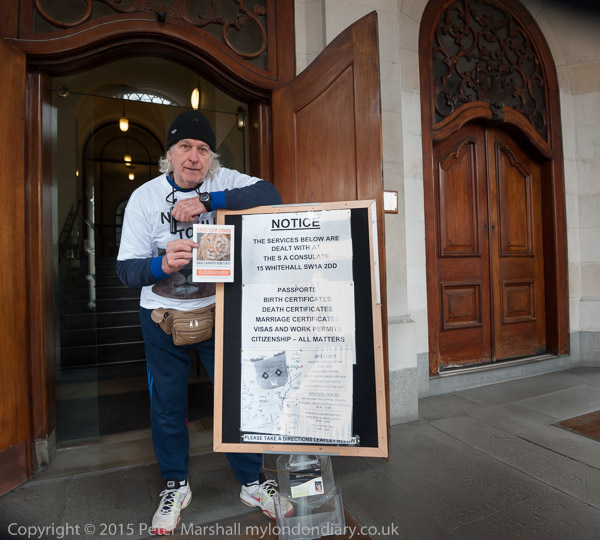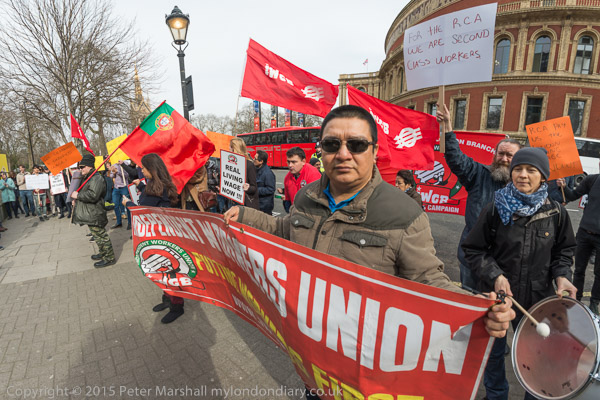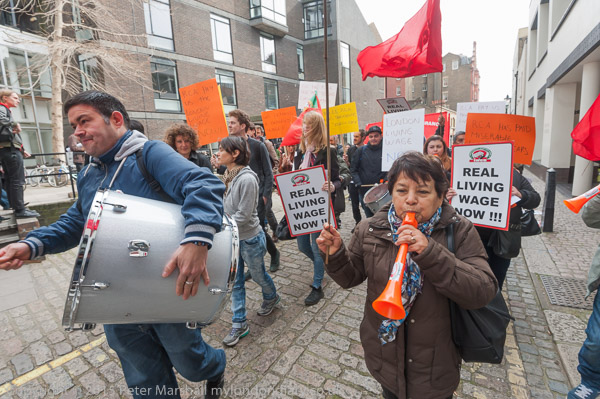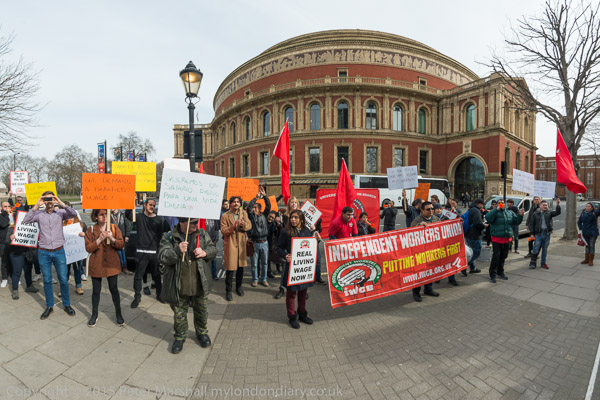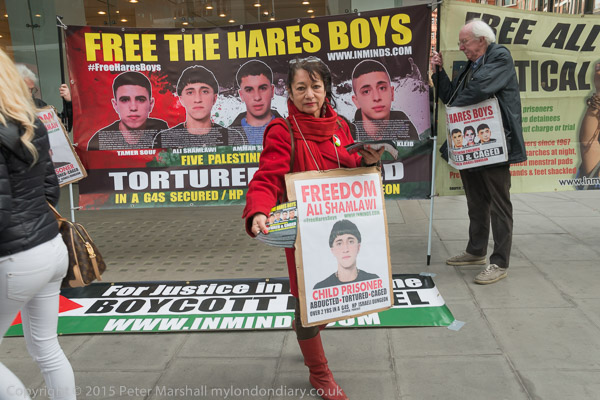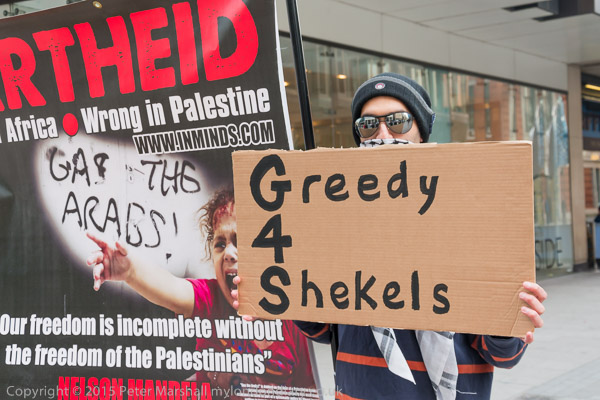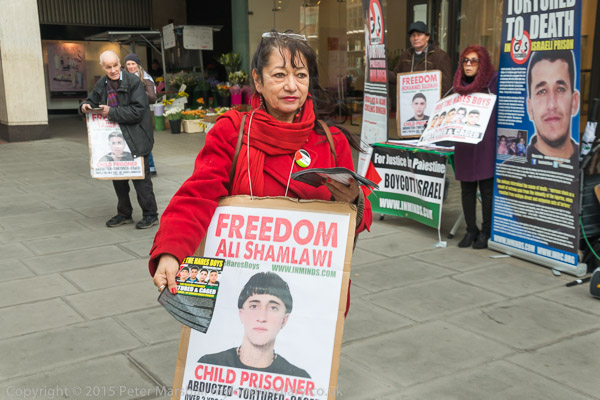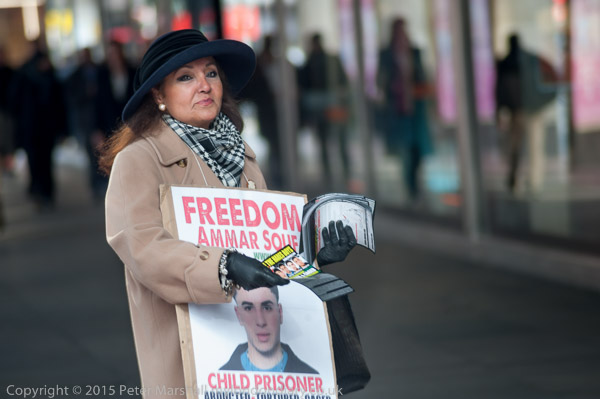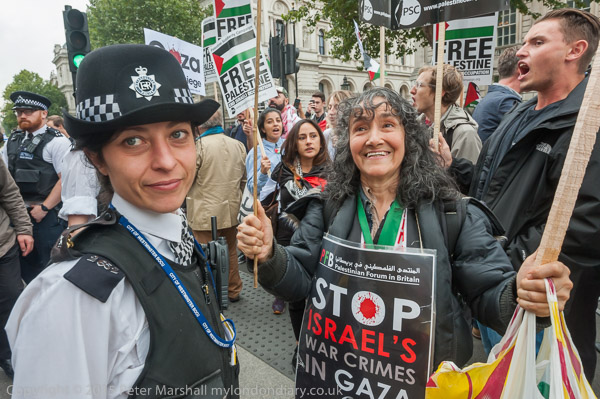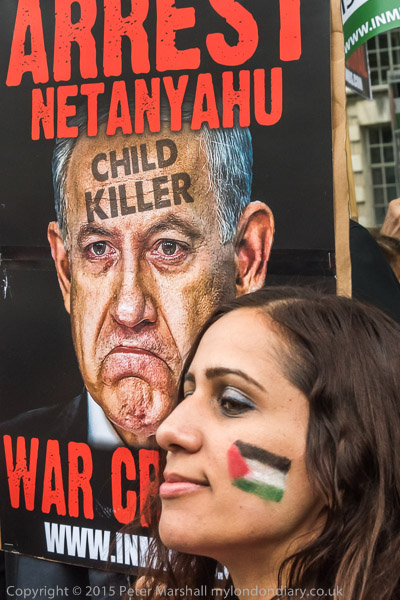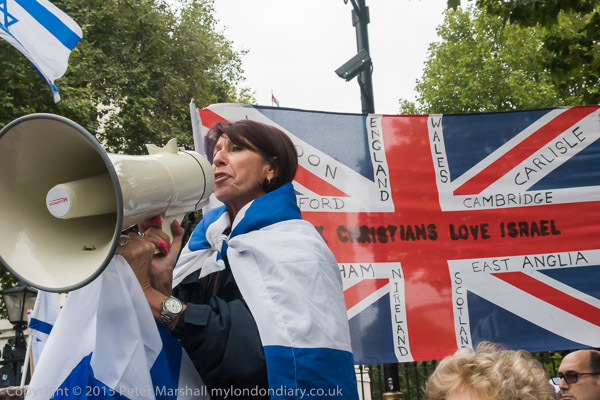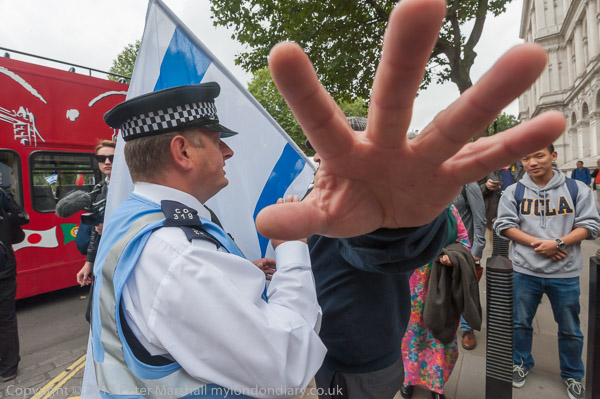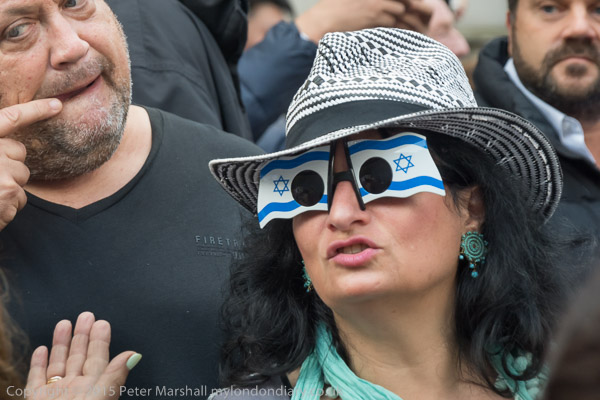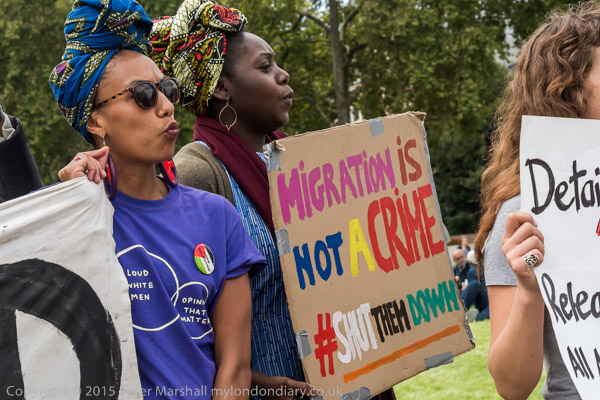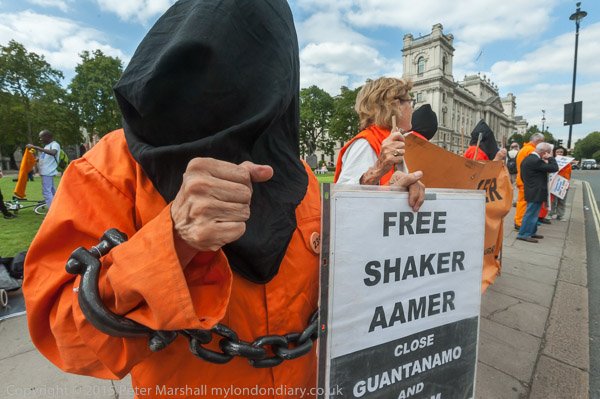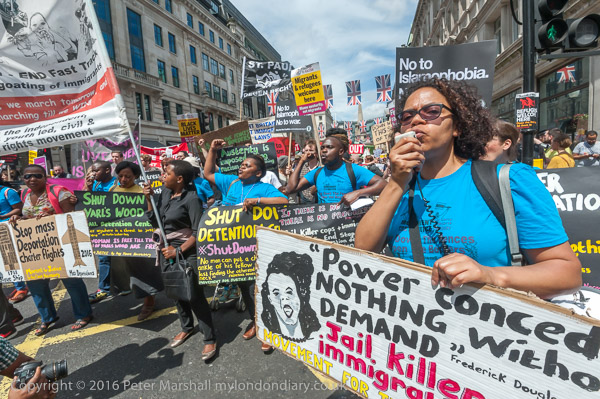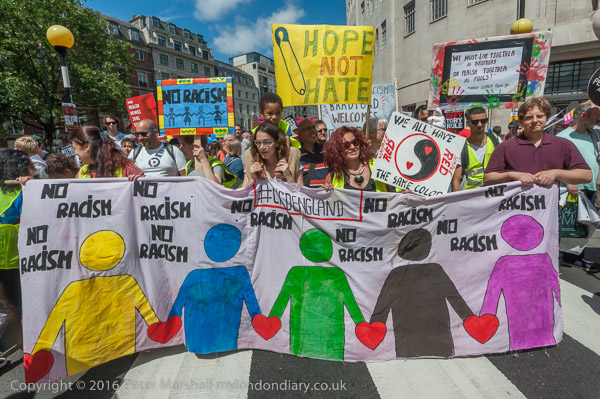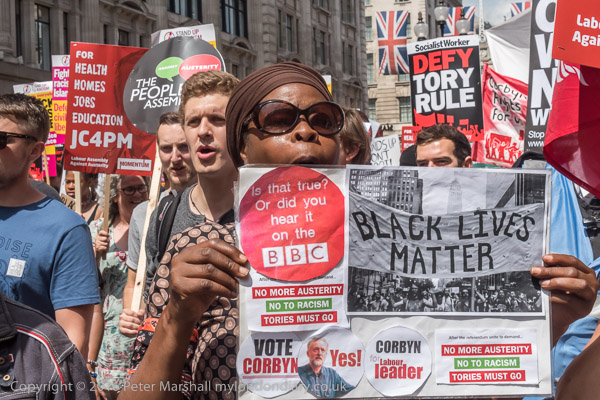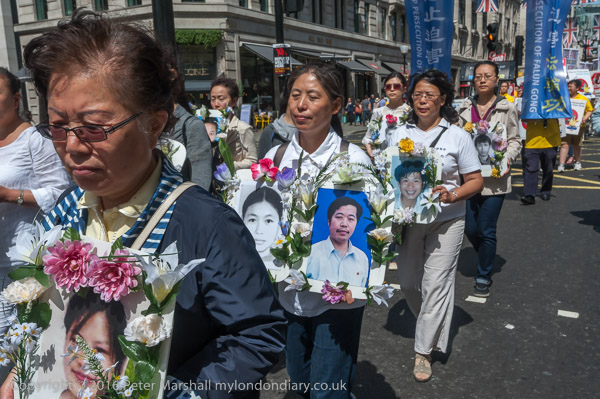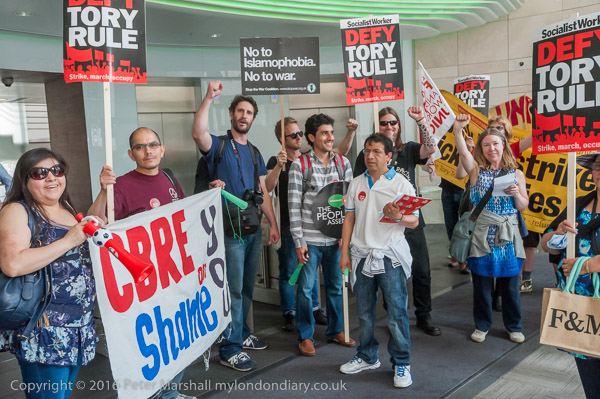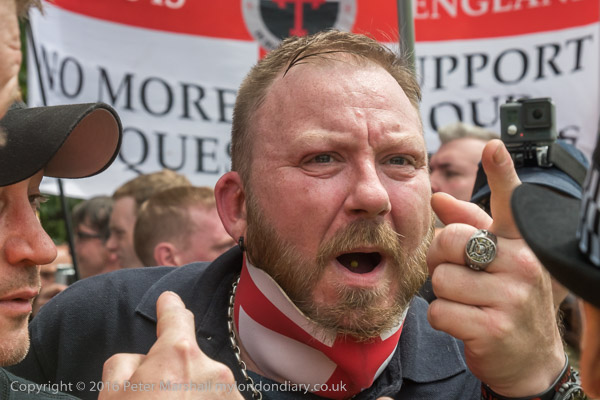Shut Down Yarl’s Wood 12: On Saturday 18th November 2017 I put my folding bike on three trains to take me to Bedford Station and rode the five or so miles to the closed main gates of Twinwoods Business Park on a former wartime aerodrome. Mostly it was an easy ride, but the last half-mile or so was up a rather steep hill and I was well out of breath by the time I arrived to meet the crowd of protesters already there but waiting for more coaches to arrive.
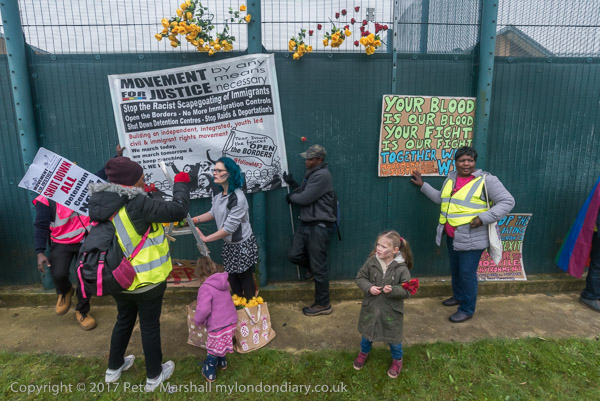

It was I think my 11th visit to photograph the protests organised by Movement for Justice at Yarls Wood Immigration Centre on the other side of the business park a little over a mile away which we could reach by a public footpath.

The numbers at the protest were down on the previous protest as the preparations for the event had been disrupted by a controversy about Movement for Justice, with one formerly very active member leaving feeling very angry about the group’s treatment of her. Although I sympathised with her I felt that much of what she claimed to reveal about the group was already well known and that she and her supporters were using her personal issue in a way that damaged the campaign to close Yarl’s Wood and other immigration prisons.

As I wrote in 2017:
“MfJ has never made any secret of its political background (you can read about it on Wikipedia), and has done far more than any other group to raise the issue of immigration detention, organising major protests at Harmondsworth, the Home Office and Yarl’s Wood and working practically with many former asylum seekers to stop deportations. And while much of the organisation of protests has clearly been carried out by a small and devoted core group, the activity and enthusiasm of those former asylum seekers is vital. MfJ would be impotent without their support, which it would not have unless it commanded their respect.”

The protesters held a noisy rally on the grassy area at the side of the road, with much chanting of slogans, practising them for when they would be outside the prison. They had brought large clear posters and banners that the women inside would latter be able to see, as well as a sound system and a ladder.
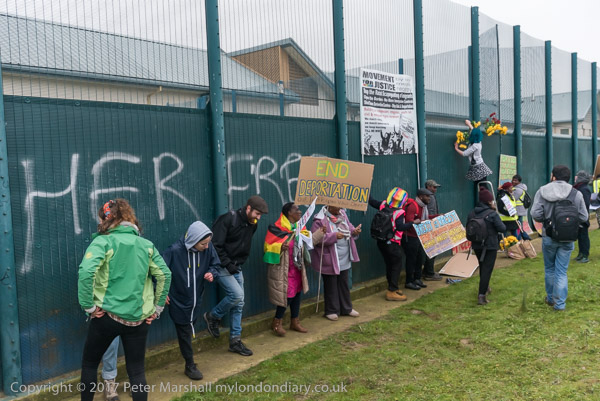
When all had arrived we set off marching a few hundred metres down the road to the start of the footpath, with me pushing my bike and stopping occasionally to take pictures. When we got closer to the site, one of the campaigners kindly offered to push my bike so I could take pictures of the marchers more easily.
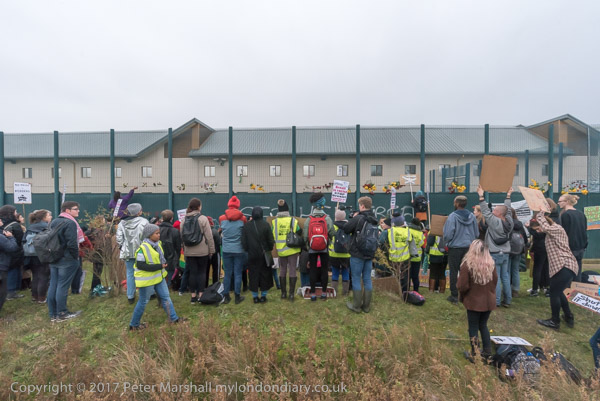
We went through a gate into a field next to the detention centre where the protesters began to make a great deal of noise, particularly by kicking and banging on the lower solid metal section of the 20ft fence imprisoning the site.
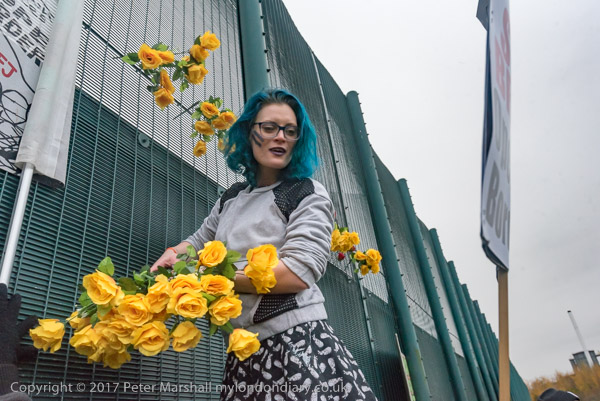
The field slopes up steeply from the fence and others stood on the flat area at the top where they could see through the grid on the top 10 feet of the fence – and be seen by the women inside who were able to get to the upper floor windows. Some of the protesters had brought flowers and stood on the ladder to poke them into the grid.
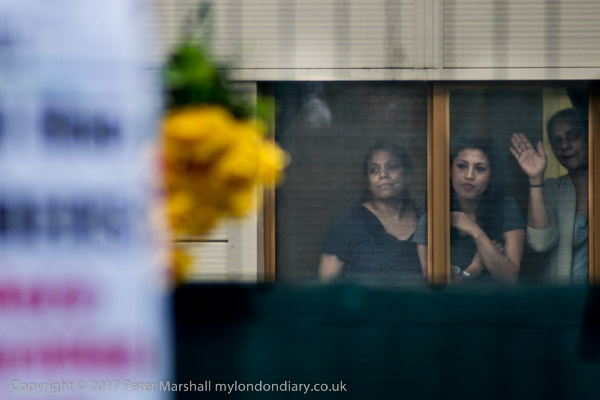
We could see – if not clearly – the women inside who had come to greet the protesters, holding up messages: ‘SOS Plz’, ‘5 Months In No End in sight‘, ‘We Need Freedom‘, ‘We just no visa not criminal‘, ‘Release Us’. The windows can only be opened a few inches but some managed to hold out their messages. The photographs using a very long lens show them more clearly than we could see them.
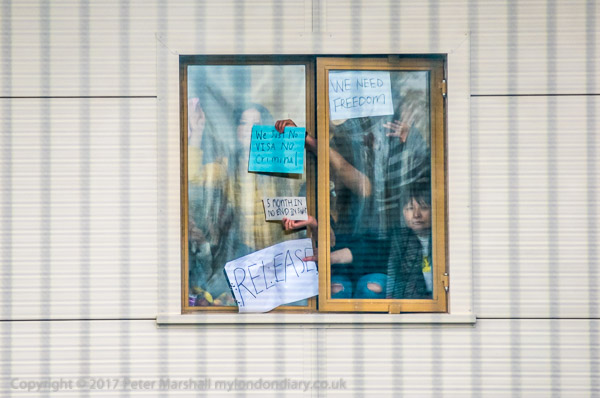
The prison guards had put on a fashion show in another block of the centre to try to entice the women away from the windows, and guards were harassing them and telling them to leave the rooms facing the protest, event trying to pull them away, but they still manage to stay there to greet the protest. But some of the windows were pretty crowded.
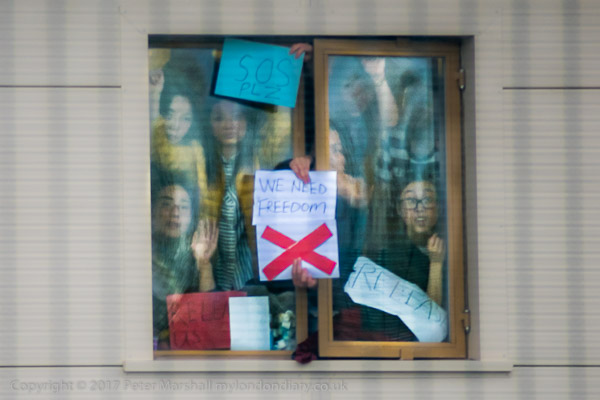
Some held up mobile phone numbers in large print – the detainees are allowed phones to contact their lawyers and others over their immigration cases – and we were able to hear their voices which were relayed to the PA system. We could also hear them shouting, though it was hard to make out what they were saying.
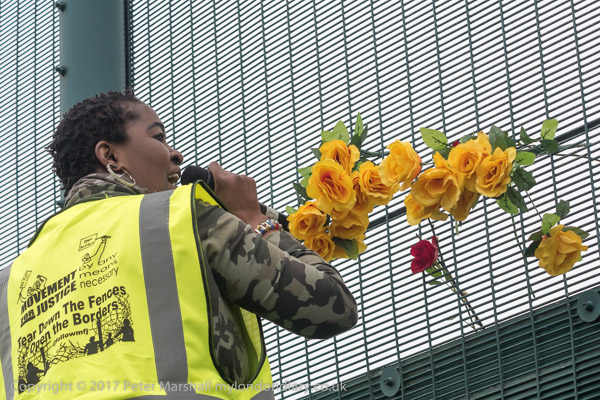
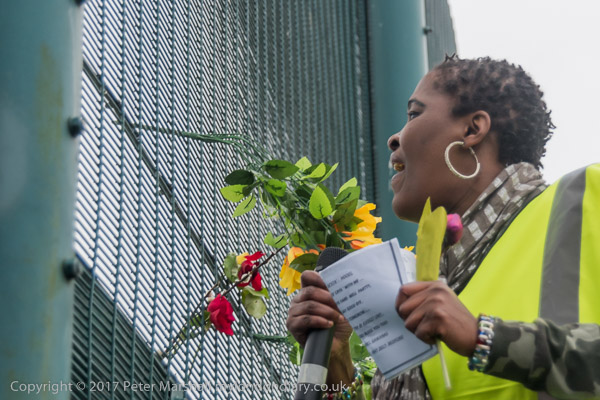
Speakers standing on a ladder could see and be heard by the women inside, and most of those who spoke were former detainees at Yarl’s Wood or other detention centres. Mabel Gawanas who was held inside there for a day under 3 years was able to speak to her friends still inside.
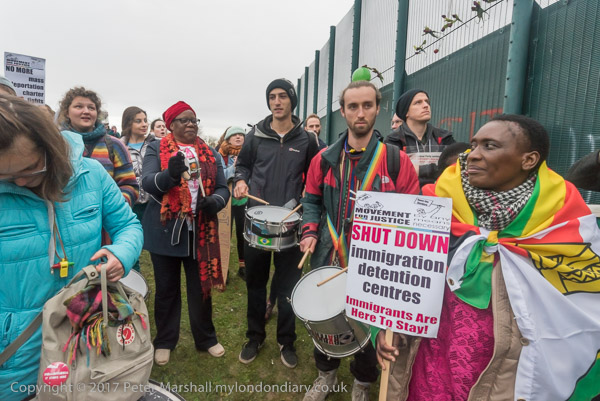
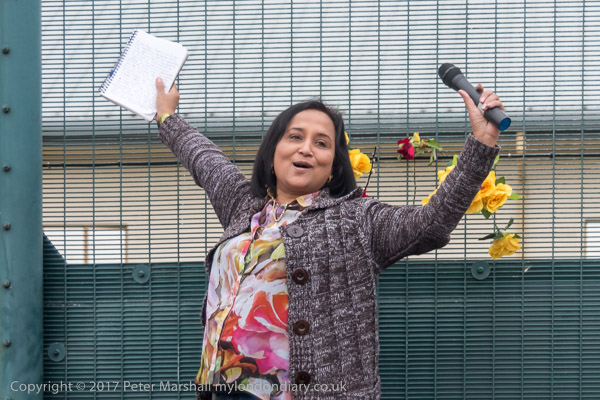
Also speaking was a woman released only a few days earlier who thanked MfJ and greeted her friends still inside.
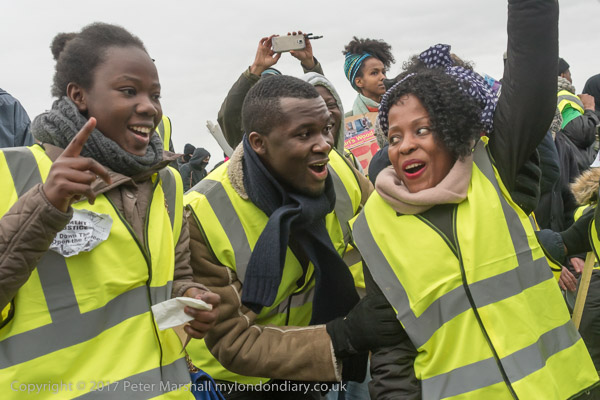
I commented “‘China’ , ‘China’, ‘Release Us’, ‘We Need Freedom’ , ‘5 Months In No End In Sight’ , ‘Release’. None of these people should be locked up. There is no good reason to lock any of them up. Some need help and protection. All need to be treated as human beings, not pawns in a numbers game to satisfy the racist right.”
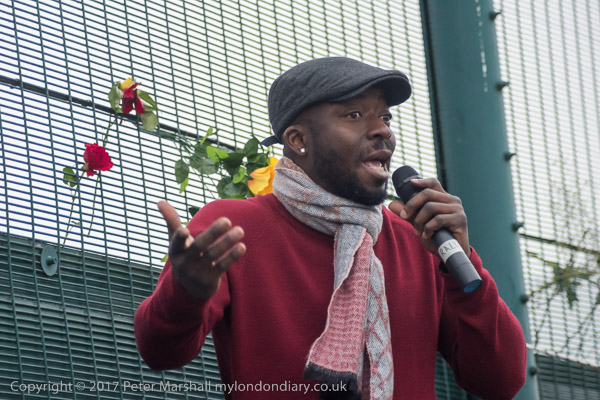
Other former detainees spoke, including some others recently release and this man who had been held in three different detention centres.
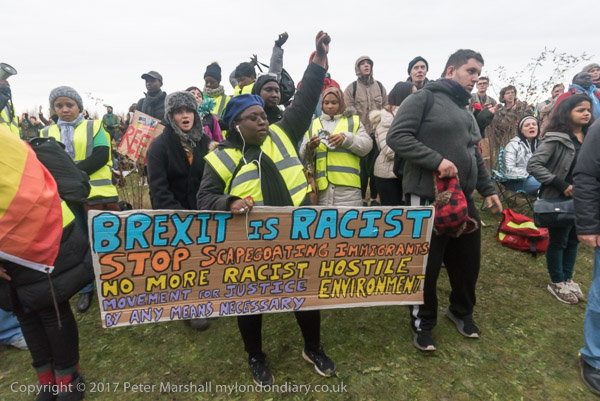
And on the hill people held their banners and the protest continued.
It was mid-November and the light was beginning to fall and the protest was to end shortly. I was getting cold and decided I had to leave, and pushed my bike back to the road for the ride back to Bedford station. Fortunately apart from one short steep hill it was mainly downhill.
Many more pictures on My London Diary at Shut Down Yarl’s Wood 12.
Flickr – Facebook – My London Diary – Hull Photos – Lea Valley – Paris
London’s Industrial Heritage – London Photos
All photographs on this page are copyright © Peter Marshall.
Contact me to buy prints or licence to reproduce.



